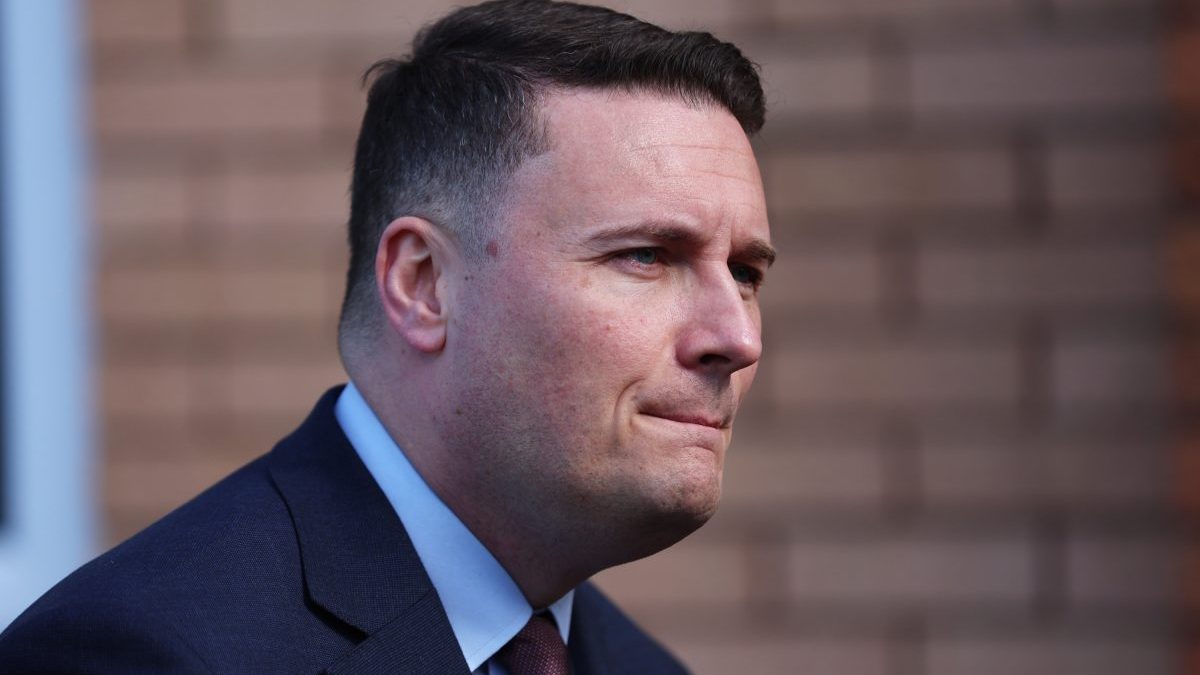The Health Secretary’s rebuilding the foundations of the NHS – if only he knew what was going on top
What is Wes Streeting really up to with his NHS reforms? It’s a reasonable question at this stage, given we are still waiting for a 10-year NHS plan that is due “in the spring”. But the Health Secretary has merrily been announcing the abolition of a quango here, 100,000 job cuts there, and a review of waiting lists to boot. The latter is aimed at immediately cutting 300,000 patients who don’t actually need treatment from the 7.4-million-long lists.
It’s not fair to say there has been no effort to improve the health service’s beleaguered state: a lot of what has been announced so far is pretty big and will feel very big to those working in the service.
But it is still unclear where all these changes are leading for patients. Currently, they appear to be the foundational work for a bigger NHS shake-up. But even though the builders are laying the hardcore, they’re not offering any idea of what’s going to appear on top – or even of whether they themselves know.
It might not even be fair to suggest that everything announced so far is foundational work. The job cuts, for instance, are also driven by pressure from the Treasury to cut costs, though Streeting always sells them in terms of the need to be more efficient and reduce duplication between the different bodies charged with commissioning and providing healthcare.
Staff may be wondering what this is all in aid of, without a big vision to keep them believing
The new chief executive of NHS England, Jim Mackey, has what sources describe as a “healthy obsession with productivity”, and is convinced that there are a good number of roles and resources that can be better deployed than they are at the moment.
But it is also the case that across Whitehall, decisions are being made on the basis that money needs to be saved, rather than because they make good sense in reform terms. Welfare is the most controversial example of that currently, and while the NHS has fared far better when it comes to funding, there is still an imperative to save money here too. “Project Chainsaw”, as it is known in Whitehall, is supposed to be a “rewiring” of the British state, though the nickname is rather telling, given electricians are not known to use chainsaws.
There is also a suspicion that some of the job cuts in integrated care boards (ICBs) are a first step to abolishing the boards altogether. These 42 bodies are responsible for planning healthcare in an area. Sources close to the Health Secretary insist that he is only interested in “clarifying their role”, and there is no intention to scrap them. They should be focused on commissioning and delivering the shift in resources from acute care in hospitals to community and preventive settings that Labour (and many Tories) has long said it wants.
Part of the “clarification” is also to remove ICBs’ performance management function, something Streeting does not feel they have ever been equipped to do. He is also unimpressed by the way failing managers seem able to remain in the system, moving to other jobs rather than being held properly accountable.
The Government is taking a carrot-and-stick approach to improving NHS management, with incentives for high-performing trusts to move faster in cutting waiting lists and improving services, and also performance-related pay for senior managers, with rises only for those who do improve care and efficiency in their trusts.
Anyone peering at these foundations and trying to guess what’s coming next might be forgiven for thinking that the NHS Plan will involve a lot of centralisation of power. Even if there is a strong rationale for removing performance management from the ICBs, the result is that this function is moved closer to the centre. This contradicts the insistence of Streeting and others’ that they believe care should be delivered locally, rather than as a result of a mandate issued from the Secretary of State’s office in Whitehall.
Either way, there is already a huge amount of upheaval, still without the wider plans for what will follow. In one sense, this doesn’t matter to patients, who won’t immediately see a change in the care they receive as a result of the cuts and reconfigurations to the NHS as an organisation.
The staff moving around may feel rather differently, wondering what this is all in aid of and without a big vision to keep them believing that better things are coming.
If a bunch of builders turned up to demolish a building, dig out foundations and poured concrete without telling anyone else on site what was going on, they’d probably expect quite a lot of fuss. Still more if they then allowed electricians wielding chainsaws to enter the site. Buildings tend to fare better when there’s an architect’s drawing or two to consult.
But we are in the strange situation of watching all the preliminary work taking place – without fully being sure it’s preparing for the right thing.
Isabel Hardman is assistant editor of The Spectator
